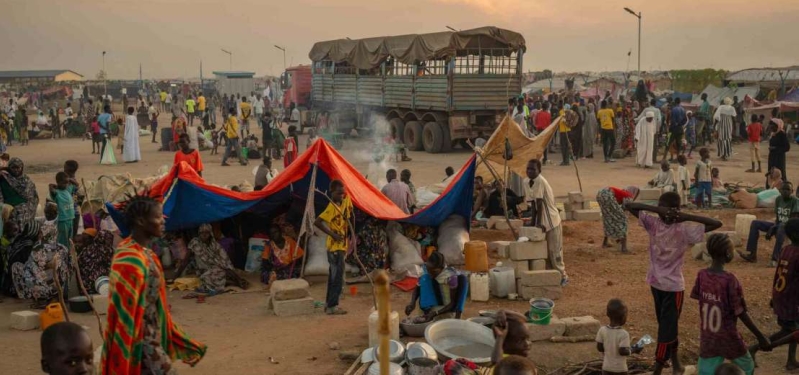
Over 1.2 million refugees escaping the devastating war in Sudan have crossed over to neighbouring South Sudan according to the UN’s High Commission for Refugees. 823,557 of them are returning to a country they fled between two major conflicts creating a unique and complex status of refugee returnees.
Despite the double tragedy that the largely Christian returnees face, refugee camps in Northern South Sudan, which also host about 400,000 refugees from Muslim-majority Sudan, have found common ground and harmony despite decades of tension between the two nations and religions.
“We have not seen animosity between the two (religious groups),” James Wani, Country Director of Christian Aid, told Christian Daily International. "Actually, there is an increased understanding between Muslims and their Christian brothers. The perception that Muslims in the North had of Christians was different before.”
Religious differences fueled the great civil war that ultimately separated the two nations. When President Jaafar Nimeiri introduced Sharia law across the unified country in 1983, the South fought back. The brutal conflict lasted until 2005, when South Sudan gained semi-autonomy and finally won full independence in 2011.
Wani underscores the complexity of returning refugees. Having lived in Sudan for years as refugees, they have been forced to return to their home country but as refugees. “I don't know whether to call them returnee refugees, because they have this double identity. They have learned to live together with their fellow Muslim brothers and sisters.”
This acceptance would have triggered serious repercussions in Sudan and sparked interreligious hostility. Wani notes that Muslims have even expressed interest in learning about Christianity, without facing pushback from their communities.
“In Northern Bahr el Ghazal, when we provided assistance, people came to us and said, ‘we were Muslim, but we have been exposed to the Christian faith, and we are embracing it’," Wani explained. "In Sudan, shifting between faiths would be a big thing. So there have not been any issues of conflict related to faith that we have been able to witness."
Other initiatives are working to heal religious divisions across the region. The Inter-Religious Council of South Sudan and Sudan Inter-Religious Council (SIRC) aim to bridge the divides between different faith groups.
Pastoral assistance reaches everyone
Despite this hopeful development, the camps face a crushing challenge: access to resources. The sudden influx of refugees from Sudan has strained what was an already dire situation.
Christian Aid and partner organizations are working to provide food, shelter, and medical assistance to those who need it. But perhaps most critical is the provision of spiritual and emotional support to heal the trauma of war.
"We are using our faith-based connections to ensure that pastoral services help people overcome the trauma of conflict," Wani explained. "We're especially focused on those exposed to sexual and gender-based violence who have experienced horrific situations on the way to the refugee camps."
The team connects survivors to psychosocial services available in the camps. They also work with community leaders to address stigma around sexual and gender-based violence.
Wani emphasizes that faith-based organizations provide services for the needy regardless of their faith or nationality. For returnees, they offer an integration package to help people start businesses and reintegrate into society.
Additionally, Wani said Christian Aid collaborates with the Humanitarian and Development Consortium (HDC) to provide multi-purpose cash assistance to 5,000 individuals. With additional support from the Scottish Government, it has assisted a further 2,100 people. The program integrates support for survivors, given the urgent protection needs.
Working to secure the safety of those fleeing war has revealed something unexpected to Wani and his team. Amid religious animosities around the world, they have witnessed remarkable understanding between two faiths, even during the most difficult times.






